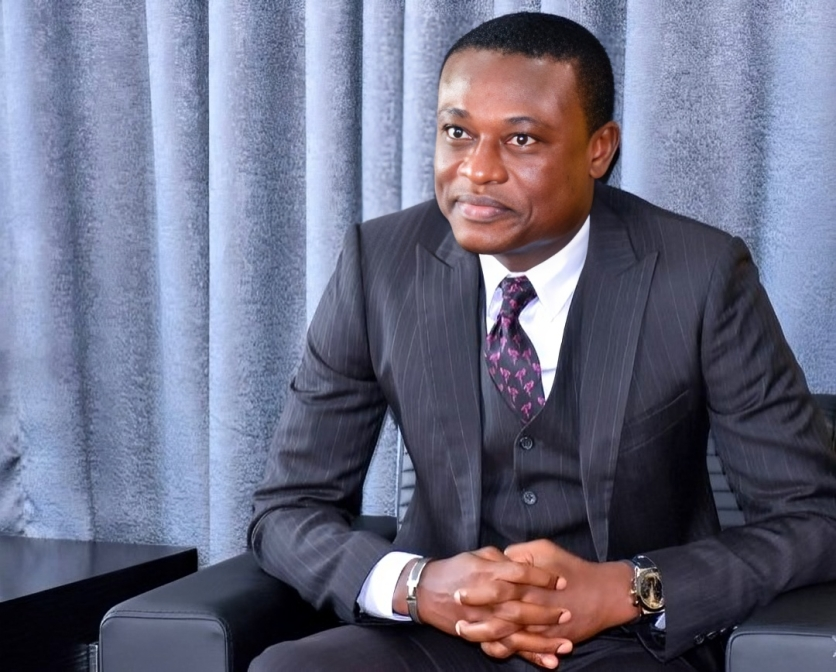Manasseh’s Exposure and IMF’s Verdict Cast Shadow Over Anti-Corruption Crusade
By Prince Ahenkorah
The Office of the Special Prosecutor (OSP) finds itself at a crossroads, its credibility eroding amid a fierce public spat and a damning International Monetary Fund (IMF) assessment. Investigative journalist Manasseh Azure Awuni has fiercely challenged the OSP’s headline $2.7 billion “savings” claim tied to its probe of the Ghana Revenue Authority (GRA) and Strategic Mobilisation Ghana Limited (SML) contract exposing a mirage that threatens to undermine the institution’s legitimacy.
Awuni, dismantling the OSP’s flagship narrative in a detailed social media dossier, points to contractual documents showing the entire five-year GRA–SML deal was worth just over $500 million, far short of the OSP’s vaunted sum.
Confronting Special Prosecutor Kissi Agyebeng, Awuni reveals even the OSP admits the $2.7 billion figure stems not from signed contracts but from a superseded Public Procurement Authority (PPA) letter one lacking any such figure.
Senior OSP officials, including Director of Strategy Sammy Darko, concur that actual payments, not preliminary PPA approvals, must anchor valuation.
While Awuni concedes an earlier slip involving omission of “per year” in the contract’s valuation, he stands firm that this does not validate the OSP’s colossal claims. More critically, he contests the OSP’s bid to claim full credit for financial recoveries linked to the suspension and eventual cancellation of SML’s contracts.
The initial impetus, he asserts, belongs to former President Nana Akufo-Addo, whose swift response to Awuni’s investigative work commissioned a KPMG audit that set cancellation wheels in motion.
By the time OSP’s investigation concluded, payments to SML had dwindled to a $1.6 million monthly fee for downstream monitoring, with President John Mahama’s administration merely formalizing impending contract cancellations.
The controversy unfurls as the IMF releases its Governance Diagnostic Assessment of Ghana, delivering a scathing indictment of the OSP’s institutional weaknesses.
The Fund highlights a glaring absence of a coherent, enforceable charging policy, leaving prosecutors without a common metric to gauge whether evidence merits court proceedings.
This systemic flaw underpins OSP’s persistent failure to secure convictions in high-profile corruption cases, fostering public skepticism.
Additionally, the IMF condemns OSP’s acute shortages: inadequate staffing, insufficient training, and a dearth of modern investigative tools handicap prosecutors facing well-equipped, seasoned defense counsels. Transparency lapses compound woes OSP’s sparse, opaque performance reporting fuels suspicions of selective prosecutions that disproportionately target lesser officials while sparing entrenched power brokers.
Crucially, the IMF laments the lack of mechanisms to study failed or withdrawn cases, an institutional blind spot denying the OSP vital lessons to refine strategy and forensic rigor. This procedural inertia risks perpetuating a cycle of underperformance just as anti-corruption credibility hangs in the balance.
New Republic investigations reinforce these findings, uncovering at least 67 viable cases languishing in procedural limbo, underscoring the IMF’s call for urgent reform. Ghana’s fight against corruption now demands stark choices: bolster the OSP with clearer protocols, enhanced resources, and transparency, or resign itself to a spectacle of legal polemics that erode public trust and invite impunity.
Until the nation commits to reform, the OSP’s saga of claims, counterclaims, and institutional fragility will continue to shadow Ghana’s quest for accountable governance.


